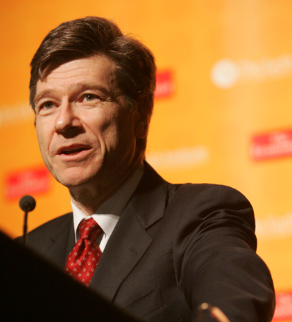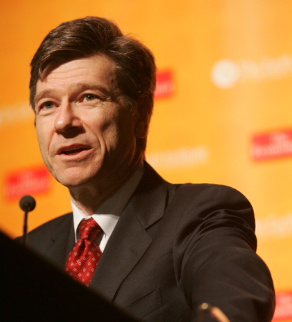Economist Jeffrey Sachs said carbon capture and sequestration (CCS) technology and nuclear energy will be necessary to avoid catastrophic climate change, comments made as part of a presentation at the Asia Society in New York Monday night.
 Jeffrey SachsFile photo courtesy the Earth Institute at Columbia University“Carbon capture better work, because they [China] are not going to stop using coal,” said Sachs, director of the Earth Institute at Columbia University and the author of The End of Poverty and Common Wealth: Economics for a Crowded Planet, among other books.
Jeffrey SachsFile photo courtesy the Earth Institute at Columbia University“Carbon capture better work, because they [China] are not going to stop using coal,” said Sachs, director of the Earth Institute at Columbia University and the author of The End of Poverty and Common Wealth: Economics for a Crowded Planet, among other books.
He gave a lucid and thoroughly depressing talk on “China’s Role in the Global Climate Game,” describing a number of unpleasant options China, the United States, and the rest of the world will have to face in dealing with climate changes already underway.
“Any quantitatively realistic path for a fast-growing China will mean a tremendous reliance on coal,” he said. “They will have to use growing amounts of coal for decades to come.”
That leaves the U.S. with no choice but to develop and use CCS technology, despite the fact that it’s never been successfully implemented, he said. Renewable energy sources and improvements in efficiency won’t come close to meeting the world’s growing energy demand, he said.
“There’s no quantitative way to get this right without the nuclear industry playing a really large role,” he said. “It’s not a happy thought, but it’s unavoidable.”
And if you thought cleaning up the coal industry was politically difficult in the U.S., Sachs finds the Chinese political landscape “vastly worse” on that front.
Regarding Chinese leadership on climate he said, “China’s leadership takes this issue seriously, but China’s leadership also takes very seriously the issue of economic development. … They want to catch up to the West.”
In other words, those coal plants won’t be shut down any time soon.



